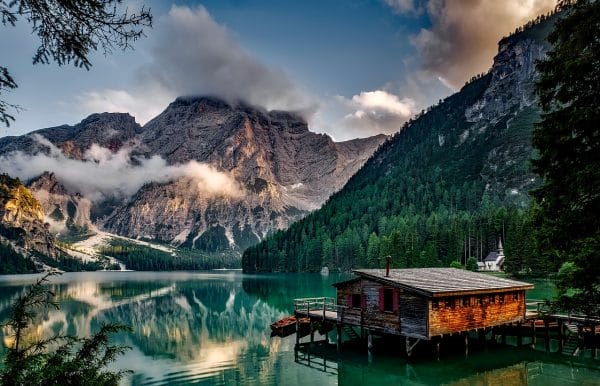The Love of Nature: Breathing with the Earth
For many, the love of nature is as essential as the air we breathe. It’s an unwavering affection that connects us to the earth, its beauty, and its myriad of life. But what is it about the natural world that stirs such a profound sense of devotion in us?
In this exploration, we’ll delve into the essence of this connection, uncovering the ‘word for love of nature,’ examining inspirational ‘love of nature quotes,’ and seeking to understand ‘what is the nature of love’ for our planet’s landscapes and ecosystems. We’ll also reflect on personal sentiments by addressing ‘why do I love nature so much,’ and providing valuable insights supported by relevant examples, case studies, and statistics.

Table of Contents
Understanding the Love of Nature
![]()
The ‘word for love of nature’ is often encapsulated by the term ‘biophilia,’ which suggests an innate affinity among humans to connect with other forms of life and nature as a whole. This concept, popularized by American biologist E.O. Wilson, proposes that our natural affection for the living world is a fundamental, deeply ingrained aspect of our humanity.
Why Do I Love Nature So Much?
![]()
The reasons behind our love for nature are as diverse as the landscapes we cherish. For some, it’s the tranquility and peace found in the gentle rustling of leaves or the steady crash of ocean waves. For others, it’s the thrill of adventure in untamed wilderness or the humbling experience of standing atop a mountain peak. Here are a few reasons why people are drawn to nature:
- Health Benefits: Nature has proven health benefits, including stress reduction, improved mood, and enhanced physical well-being.
- Beauty and Inspiration: The sheer beauty of the natural world often inspires creativity, awe, and a sense of wonder.
- Connection to Life: Being in nature can foster a sense of connectedness to all living things, reinforcing our place in the world.
- Escape: Nature provides an escape from the hustle and bustle of daily life, offering solitude and a space for reflection.
Love of Nature Quotes to Inspire
![]()
Throughout history, poets, writers, and thinkers have tried to capture the essence of our connection to nature through words. Here are a few ‘love of nature quotes’ that encapsulate this profound bond:
- “In every walk with nature, one receives far more than he seeks.” – John Muir
- “The earth has music for those who listen.” – William Shakespeare
- “Adopt the pace of nature: her secret is patience.” – Ralph Waldo Emerson
These quotes remind us that nature’s gifts are abundant and available to all who seek them. They encourage us to slow down, observe, and immerse ourselves in the natural world.
What Is the Nature of Love for the Environment?
![]()
The ‘nature of love’ for the environment is multifaceted, encompassing respect, admiration, and a sense of responsibility. It’s not merely about enjoyment but also about stewardship and preservation. Love for nature compels us to protect and care for the environment, ensuring that future generations can experience its wonders.
This responsibility has never been more critical than it is today, with the growing threats of climate change, habitat destruction, and biodiversity loss. Our love for nature must translate into action to safeguard our planet.
Personal and Cultural Expressions of Nature Love
![]()
The expression of love for nature varies across cultures and individuals. For some, it’s found in the practice of gardening or hiking, while for others, it’s in advocating for conservation or engaging in citizen science projects. Let’s look at some ways in which this affection manifests:
- Outdoor Recreation: Engaging in activities like camping, birdwatching, or kayaking allows people to connect with nature.
- Art and Literature: Countless works of art and literature have been inspired by the beauty of the natural world, from landscape paintings to nature poetry.
- Conservation Efforts: Many channel their love of nature into efforts to protect endangered species, fight pollution, and promote sustainable living.
Case Studies: The Impact of Nature Love
![]()
Examining case studies provides concrete examples of how the love of nature can lead to significant positive changes. For instance, community-led conservation efforts have successfully protected critical habitats and reversed the decline of endangered species. National parks and protected areas, often established due to the passion of nature advocates, serve as safe havens for biodiversity and offer people opportunities to connect with nature.
Furthermore, urban green spaces have been shown to improve mental health and social cohesion in cities, illustrating the importance of integrating nature into our daily lives.
Statistics: The Growing Love of Nature
![]()
Statistics reflect a growing appreciation for nature across the globe. For example, a significant increase in the attendance of national parks and an upsurge in the membership of environmental organizations suggest that more people are seeking to engage with the natural world and protect it. Studies have also shown that exposure to nature during childhood is a strong predictor of environmental stewardship in adulthood, highlighting the importance of fostering a love of nature from a young age.
Frequently Asked Questions
![]()
What is the love of nature?
The love of nature, also known as biophilia, is an appreciation or deep affection for the natural world and living things. It’s about enjoying the outdoors, protecting wildlife, and feeling a connection to the Earth.
Why do people love nature?
People love nature for various reasons. It can be for the beauty and peace it offers, the sense of wonder and adventure when exploring, or the physical and mental health benefits it provides through activities like hiking or gardening.
Can loving nature improve my health?
Yes, loving nature can improve your health. Spending time outdoors reduces stress, boosts your mood, enhances creativity, and can improve physical health by encouraging exercise and exposure to fresh air and natural light.
How do I teach my kids to love nature?
You can teach kids to love nature by engaging them in outdoor activities like hiking, camping, or gardening. Encourage their curiosity by helping them learn about plants, animals, and ecosystems, and by being a role model in expressing your own appreciation for the environment.
How can I connect with nature if I live in a city?
Even in a city, you can connect with nature by visiting parks, community gardens, or local green spaces. Balcony gardening, indoor plants, or bird watching from a window can also help cultivate a love of nature.
What are some ways to show love for nature?
Showing love for nature can involve activities like recycling, volunteering for conservation projects, reducing your carbon footprint, supporting eco-friendly products, and spreading awareness about the importance of protecting the environment.
How can spending time in nature affect my mental health?
Spending time in nature can have a positive impact on your mental health by reducing symptoms of stress, anxiety, and depression. It can also improve your concentration, memory, and cognitive function.
Is it possible to love nature but not be outdoorsy?
Yes, you can love nature without being outdoorsy. Appreciating nature can also come from reading about it, watching documentaries, studying it academically, or enjoying nature-inspired art and music.
How can I make a career out of my love for nature?
To make a career out of your love for nature, consider fields like environmental science, conservation, wildlife biology, forestry, environmental education, or sustainable agriculture. These careers focus on understanding, protecting, and educating others about the natural world.
Can loving nature help combat climate change?
Loving nature can contribute to combating climate change by inspiring actions that reduce human impact on the environment. This includes advocating for clean energy, reducing waste, and supporting policies and initiatives aimed at preserving natural habitats and reducing greenhouse gas emissions.
Conclusion: Embracing Our Intrinsic Love of Nature
![]()
In conclusion, the love of nature is a rich and complex emotion that drives us to seek connection, find solace, and draw inspiration from the world around us. It’s a feeling that compels us to preserve and cherish the earth’s natural wonders. Whether through enjoying outdoor activities, engaging in environmental activism, or simply pausing to admire the beauty of a sunset, our affection for the natural world is a testament to its importance in our lives.
The key takeaways of this exploration include recognizing the diverse motivations behind our love for nature, the role of nature in our physical and mental health, and the urgent need to convert this love into conservation action. By understanding and nurturing our intrinsic connection to nature, we can ensure that its beauty and benefits endure for generations to come. Let us continue to celebrate and cultivate our love of nature, for it is one of the purest forms of love we can experience.
Originally posted 2023-06-05 23:23:33.
